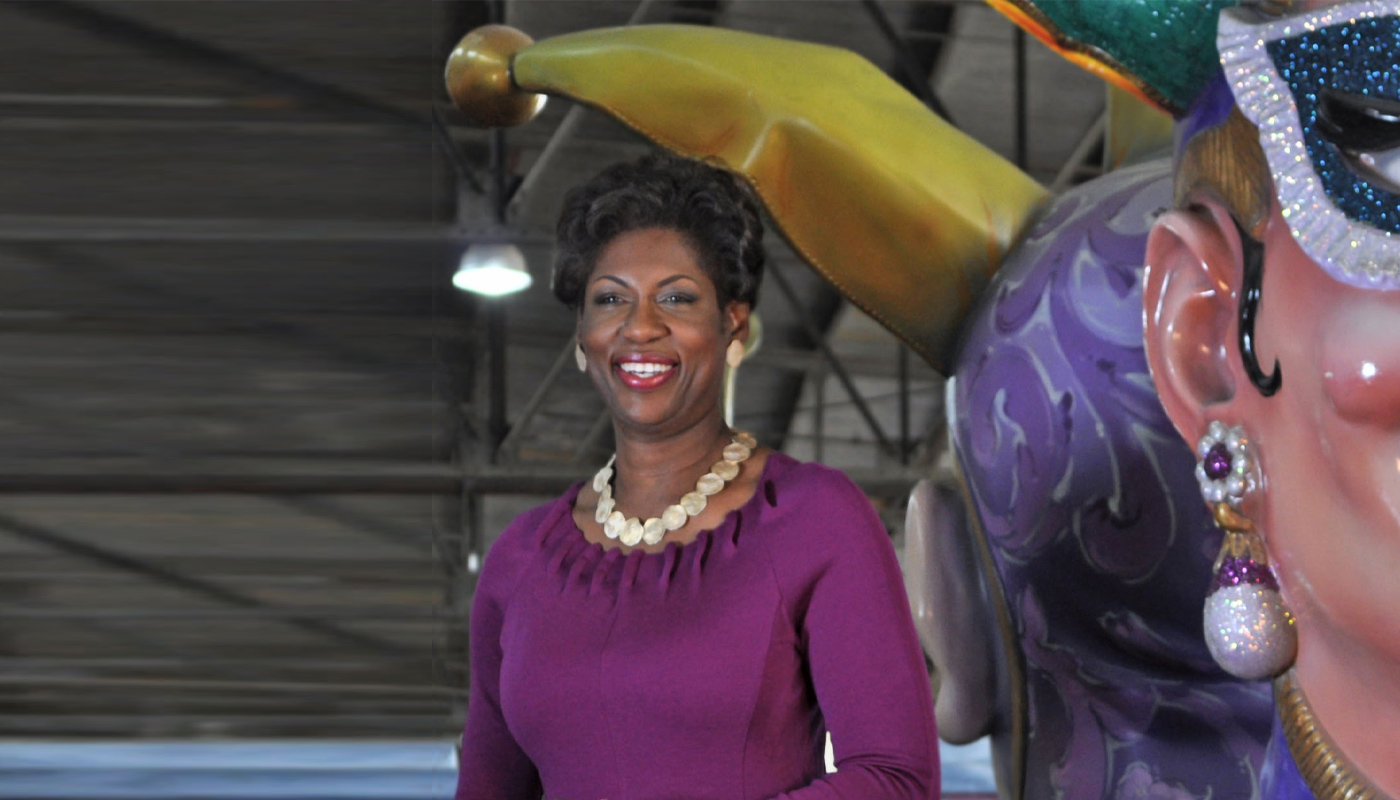
News writer
Maybe you've heard the story of Tonda Dickerson. A divorced waitress in her late twenties, Dickerson was working at a Waffle House outside of Mobile, Alabama, in March 1999 when a regular patron, Edward Seward, tipped her a Florida lottery ticket. After the state's drawing was held nearly a week later, on the following Saturday, that ticket would be worth $10 million, immediately enriching Dickerson but also radically altering her life in a number of other, less fortunate ways.
First were Dickerson's co-workers at the Waffle House. After they'd gotten word that she'd been tipped a lottery ticket that would go on to be worth eight figures, they jumped at the opportunity to share in the enormous windfall. According to their testimonies at a court case just a month later, in April 1999, all the waitresses at the restaurant had agreed to share any winnings from lottery tickets given to them as tips. Dickerson's lawyer, however, had a different perspective: they were “rats coming out of the woodwork,” eager to assert their questionable claims on a vast, life-changing sum of money. A couple of years later, Seward himself would take a crack at trying to peel away some of the winnings, claiming in court that Dickerson had agreed to buy him a new truck if the ticket turned out to be a winner.
The various lawsuits were only one aspect of Dickerson's onslaught of post-lottery woes. The IRS would hound her for years based on the premise that she owed roughly $1 million in gift tax because she'd given away much of her lottery fortune to family members through a business they'd incorporated shortly after the windfall. And her star-crossed narrative was not without its measure of frightening, stranger-than-fiction violence, either: in 2002, Dickerson's ex-husband attempted to kidnap her and take her to an isolated boat launch area in Jackson County, Mississippi. According to the local sheriff who investigated the incident, on their way to the boat launch, “All the time they were driving, he told her that he was going to kill her.” As they barreled closer to what appeared to be a potentially fatal destination, Dickerson managed to surreptitiously fish out a .22-caliber handgun from her purse and fire a shot at her ex-husband. While he was bleeding from a gunshot wound to the chest, Dickerson convinced him to head to a nearby hospital where he could be treated.
Dickerson's life in recent years is almost certainly not what comes to mind when most people envision the exploits of a multi-million dollar lottery winner. As of 2018, she was reportedly working as a poker dealer at a Golden Nugget casino in Biloxi, Mississippi.
The story of Tonda Dickerson, which has been an object of unrelenting fascination for media outlets and their readers for well over two decades now, is one of the more memorable incarnations of the idea of the “lottery curse.” There's also Jack Whittaker, Abraham Shakespeare, Urooj Khan, and Americo Lopes—all individuals the press became enamored of because their lottery wins were followed by travail and tragedy. Whether it's winners getting sued by colleagues and acquaintances who believe they have a legal claim on the money, ill-conceived investments that rapidly wither away or leave the newly flush running afoul of the law, acts of extreme violence, or tragic deaths under mysterious circumstances that point to the murderous lengths to which greed will drive people, breathless accounts of lottery winners succumbing to successive waves of misfortune abound in our media and cultural landscapes.
Jackpots vs. American ideals
Why is there such an insatiable appetite for these shocking, often nefarious narratives in which the newly wealthy find themselves under siege by an array of forces seemingly intent on wiping out their prosperity? What, in other words, makes us so profoundly interested and invested in the idea of the lottery curse?
One clear, largely indisputable place to start is by acknowledging the fact that there is a great deal of schadenfreude fueling the popularity of these stories. Readers are—to some extent understandably—envious of individuals who one day find themselves millions of dollars richer than they were the day before, and they take a callous, even malevolent, pleasure in learning about the messy unraveling and dissipation of these spontaneous fortunes. As their troubles stack up, the lives of these winners are subjected to a kind of tabloid lens, with people developing a lurid, voyeuristic interest in narratives that paint them in unflattering, sensationalized colors. They become hapless figures in vaguely cautionary tales, crudely drawn caricatures of greed, incompetence, and unworthiness.
For all its triviality, this schadenfreude and the one-dimensional coverage it fuels are connected to some surprisingly hefty ideas deeply rooted within the American psyche. We are a nation that clings fiercely to the conviction—however imperiled by intractable economic and racial inequalities—that hard work, exhaustively honed talent, craft, and up-by-your-bootstraps individualism are the pillars of a successful life. Many of us continue to be invested in the galvanizing idea that, resting underneath our imposing and seemingly unyielding class system, there is a key to upward mobility and the improvement of one's material circumstances. That key is firmly within our power to summon and cultivate; a work ethic and the character that grows out of it.
But the lottery and the millionaires it produces are a challenge—a repudiation, even—of these ideas. There is an underlying sense that striking it rich, quite literally at random, is some kind of violation of the longstanding ideals Americans are so culturally entrenched and emotionally invested in. Hitting the jackpot can be instantly transformative, catapulting a person over the long, arduous path to class ascension and self-betterment and directly into a life of affluence, leisure, and status. This transgressive act, in which these widely-held rules and expectations are neglected and bypassed, rubs people the wrong way because it casts serious doubt on those very rules (and because, well, we wish we were the ones trumping the system).
This brings us back to the lottery curse. The idea of the lottery curse—or, more straightforwardly, the notion that so many lottery winners find themselves embroiled in conflict, strife, and wealth-draining litigation—is so satisfying for people because it carries out a crucial reversal of fortune. This reversal effectively nullifies the rule-breaking windfall, returning beneficiaries to a station in life more befitting of their character and identity (so the thinking goes, at least) and restoring the legitimacy and credibility of the ideals we're so attached to. Winners fall victim to a lack of prudence and foresight, an accumulation of poor judgment, or morally shady behavior—proof that they're unworthy of the wealth they fell into—or are simply undone by forces outside their control.
In any case, the massive lottery jackpot—that gaudy threat to how so many of us understand class mobility and the American Dream—is neutralized, and we are again able to believe that only character and old-fashioned, persevering work ethic are capable of vaulting people up the socioeconomic ladder.
Interrogating the myth
Now that we understand a few of the reasons why the lottery curse is such a powerful, persistent trope in American culture, it's worth investigating the statistical realities behind these stories. While media outlets have been covering the woe and misfortune of winners for decades, there has been precious little in the way of research or statistics to answer a simple critical question: are these (ironically) down-on-their-luck individuals representative of the whole of lottery winners, or are they rare exceptions to the rule?
Answering this question requires revisiting one of the most widely cited pieces of evidence allegedly substantiating the lottery curse. For years, reporters and news organizations were citing the statistic, which they attributed to the National Endowment for Financial Education, that a whopping 70 percent of major lottery winners end up going bankrupt within just a few years. But this figure, which was cited ad nauseam as a kind of shorthand for the “be careful what you wish for” quality of the lottery, would turn out to have highly dubious origins. In 2018, the NEFE clarified the attributions, stating that a participant at a symposium held by the organization in 2001 had made that statistical assertion. “This statement,” NEFE explains, “was made independently and without verification from NEFE.”
Figures and statistics from more credible sources carrying out legitimate, verifiable research paint a far different, more positive picture of post-lottery life. In a study published in the Journal of Health Economics in 2007, British researchers used the General Health Questionnaire (GHQ) to measure the well-being of individuals who'd experienced “medium-sized lottery wins” between 1,000 and 120,000 pounds (or up to $200,000). When compared to multiple control groups, the lottery winners exhibited significantly better psychological health two years after receiving their windfalls. A more recent study, published in 2020 by a cohort of researchers from Stockholm University, Stockholm School of Economics, and New York University, looked at the psychological well-being and overall life satisfaction of over 3,300 Swedish lottery winners. Surveying these winners between five and 22 years after their initial lottery wins, the researchers found “sustained increases in overall life satisfaction” that, crucially, “show no evidence of dissipating over time.”
It would seem, then, that the idea that lottery winners are destined for lives of unforeseeable hardship and ceaseless drama—a notion that's come alarmingly close to being embraced as outright conventional wisdom—simply doesn't hold up to the statistical realities. While many of us would like to believe in another questionable dictum, “money can't buy you happiness,” the truth is that a windfall of six, seven, or eight figures can give people a sense of stability and security, provide new opportunities for them to pursue gratifying passions, and significantly decrease the pressure to work long hours (although most winners continue on in their careers).
The Tonda Dickersons of the world are unfortunate minorities, winners who get snarled in legal woes and bad blood and can't seem to pull themselves out of an endless churn of personal turmoil. But then again, we've only learned of Dickerson's life through a highly sensationalized tabloid press insistent on confirming their underlying thesis that spontaneous windfalls court catastrophe. Had she herself been administered surveys measuring her life satisfaction and psychological well-being in the years after her Florida Lottery ticket netted her $10 million, even she might have reported a meaningful boost.
The true pitfalls
Although a number of studies from the past two decades go a long way in refuting and—with any luck (pun intended)—permanently putting to rest the idea of the lottery curse, the exaggerated cautionary tales captured in these media accounts do carry a few important grains of truth.
It's true, for example, that some lottery winners find themselves entangled in expensive, protracted, and presumably soul-sucking legal battles, combating lawsuits from individuals with their own subjective arguments or rationale for why they're legally entitled to a cut of the fortune. And the threat of exploitation, even unnerving varieties of predation, is real—as numerous grisly accounts in the media over the years have attested to. Winners must assume a level of vigilance and circumspection that they may have never needed to employ in their pre-lottery lives, keeping an alert, discerning eye for anyone with an opaque agenda, especially those who seemed to materialize, as if out of thin air, in the period after they came into their new wealth. Schemes, plots, and sinister machinations can arrive in an infinitude of different forms for those perceived as both wealthy and susceptible. Winners need to come to terms with the reality that they'll be the target of shrewd, calculating vultures for years following their enrichment, if not for the rest of their lives.
Arguably, the most serious, consequential challenge recipients of lottery windfalls need to contend with, though, is the way such a large, sudden infusion of wealth can alter, complicate, and dramatically rearrange the dynamics between them and their friends and loved ones. Some people may hold certain assumptions about how lottery winners will share their fortunes, hoping to be ferried along for the ride into a more luxurious lifestyle. Others, meanwhile, will become more bold and even brazen in their appeals for financial support during ostensibly difficult times.
As these expectations begin to mount, winners need to be clear-eyed and intentional about their generosity and the extent to which they're willing to share their wealth with those close to them. Adopting a loose, seat-of-your-pants approach without some firm rules of the road can put people on a slippery slope toward destructive excess, personal resentment, and even financial ruin. Establishing boundaries from the outset can help recipients preserve their wealth and prevent their windfalls from reconfiguring their relationships in toxic and often irreversible ways. Such guardrails notwithstanding, most people who come into significant lottery winnings can expect at least some of their relationships to become strained or even damaged under the weight of such a life-changing event and the competing perspectives it so often inspires.
Winning the lottery is, by its very nature, an anomalous event. Because of the experience's rarity and the way it pushes against the grain of so much of everyday life, those who win will always be subject to curiosity, envy, judgment, and, in some cases, a barely veiled ill will. Such a sudden, largely permanent transformation in people's fortunes for the better, achieved not through diligence or merit but by way of pure, absolute luck, doesn't always sit well with Americans who believe that we should be agents of our fates and that the opportunity to move up in the world should only be given to those who work hard enough to take it.
The lottery curse, that peculiar myth sustained by a slow but steady trickle of tabloid narratives about woebegone winners, is a way for us to punish those whose lucky break violates that national ethos. But no matter how many times the myth is invoked, through one news piece, op-ed, and dubious statistic after another, the lived, experiential reality stays exactly the same: winning the lottery is a wonderful stroke of fortune that leaves people grateful, jubilant, and—for the most part—enduringly better off than they were before.



















Comments